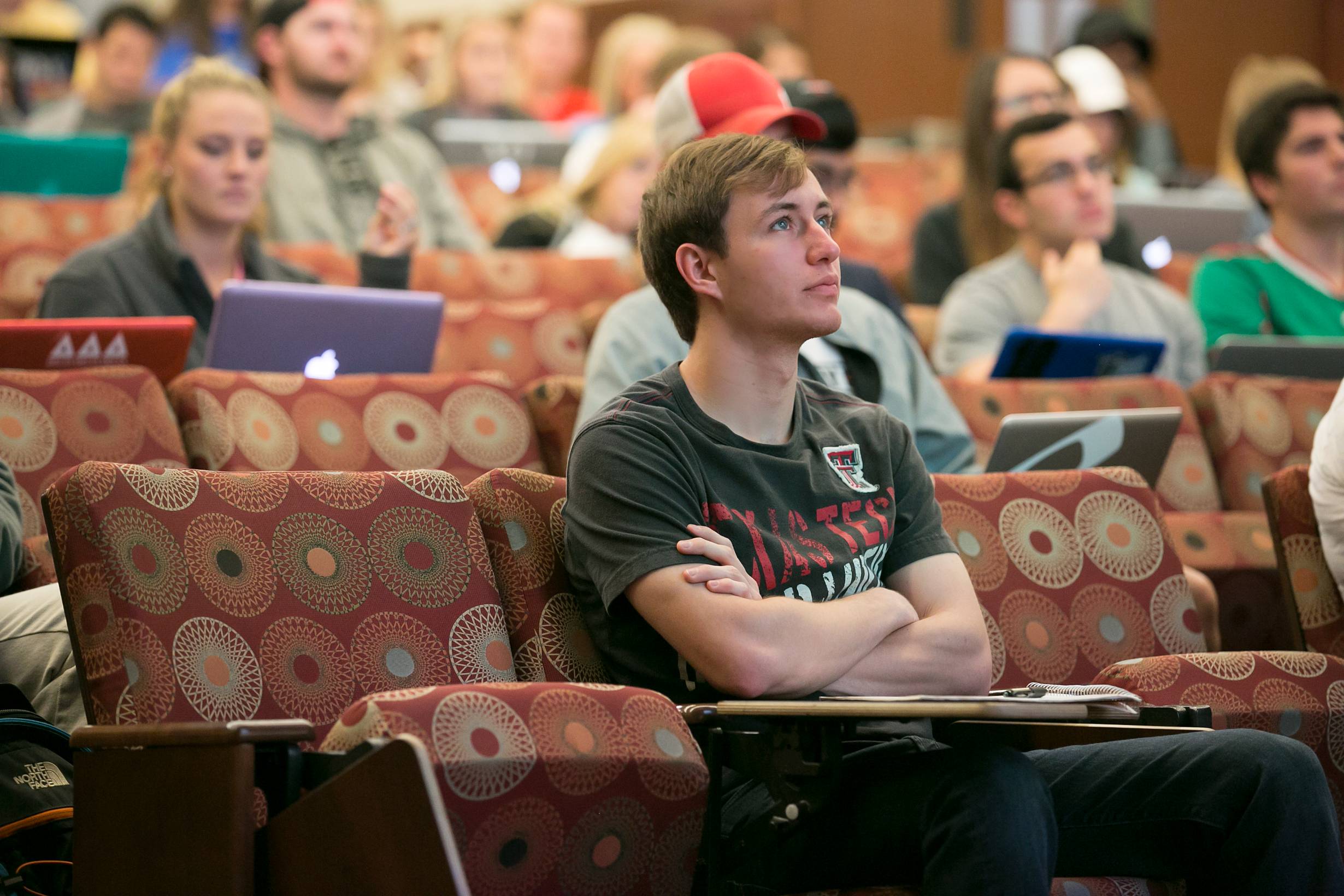FAQs on Ph.D. Program
Requirements
What are the requirements for the Ph.D. program?
There are two types of requirements - Graduate School requirements, and Department of Economics requirements.
Graduate School Requirements
- Domestic Applicants, please click here to see requirements
- International Applicants, please click here to see requirements
Department of Economics Requirements
-
CV
-
Transcript
-
GRE score (highly recommended for admission decision only, required for funding decisions)
-
Statement of Purpose, and
-
Minimum of two letters of recommendation.

More on Requirements
|
Who makes admission and funding decisions in the Department? |
The Graduate Committee in the Department, chaired by the Director of Graduate Studies, makes admission and funding decisions. |
|
Do you require a GRE score for admission? |
The Graduate School currently waives the GRE requirement for admission purposes due to the COVID-19 pandemic. If you are seeking funding from the Department, however, the Graduate Committee in the Department requires a GRE score to make funding decisions.
|
|
Do you accept a GMAT score instead of a GRE score
|
Yes, but GRE scores are preferred in order to accurately compare applicant scores.
|
|
Can I apply with my unofficial documents (such as transcript)? |
Yes, you can. If you are admitted, the Graduate School will require you to submit your official documents before you enroll and attend classes. |
|
Can I send my transcript and CV to the Director of Graduate Studies for an initial assessment before I formally submit an application to the Graduate School? |
No, you may not. The Graduate Committee will only review applications that are deferred to the Department by the Graduate School. The Graduate School defers applications to departments only when applications are complete.
|
|
I have an undergraduate degree from a country whose official language is English. Do I still have to demonstrate language proficiency (i.e., submit a TOEFL, IELTS, or Duolingo results)? |
English proficiency is a Graduate School requirement. Please check with the Graduate School and the Office of International Affairs: Click here to see the Graduate School details Click here to see Office of International Affairs details
|
|
Do I need to have a degree in economics? What are the minimum economics requirements for entering students? |
A large majority of our students enter the PhD program with a degree in economics. A substantial fraction has master’s degrees in economics. This said, a degree in economics is not essential to be considered for admission. However, Students must have intermediate-level (as opposed to principles-level or freshmen-level) coursework in both microeconomic and macroeconomic theory. Coursework in econometrics is strongly recommended. |
Application Process
|
Where should I apply? |
Click to submit your application through the Graduate School portal |
|
When should I apply? |
The Graduate Committee starts accepting applications early in the fall semester. For full consideration of funding at the time of admission, applicants must have their complete applications submitted to the Graduate School by January 15. The Graduate Committee will continue to make admission and funding decisions until April 30. |
|
Does the Department offer application fee waiver?
|
The department may offer an application fee waiver under certain circumstances. Send the Director of Graduate Studies a request for an application waiver. Please submit with your request your CV, unofficial transcripts, and reasons for your request. The Graduate Committee reviews each request independently and makes its decision accordingly. |
|
Is there an interview as part of the review process? |
Members of the Graduate Committee may conduct brief Zoom interviews with applicants being considered for admission and funding. During these interviews, the Graduate Committee will further discuss with you your CV and coursework already completed. We usually start scheduling interviews in February. |
|
When does my application become "Complete?" |
When the Graduate School reviews all of your required documents, makes sure that nothing is missing, and you meet all of their requirements, they change the status of your application on the Graduate School’s portal from “Submitted” to “Complete”. Before your application becomes “Complete”, the Graduate Committee in the Department will not be able to review it. |
|
How long should I expect to wait to receive a decision after my application becomes “Complete?” |
The Graduate Committee will start making admission decisions in February. The Committee will also make funding decisions to top candidates in February as well. That’s why we encourage applicants to apply early. Beyond that, the Committee will continue to review applications as they become complete until late April. In general, you should expect your status on the Graduate School portal to change within 60 days from the day your application becomes complete (i.e., accepted, accepted with funding, denied, or waitlisted). Note, if you are denied, you will receive a denial letter from the Graduate School. You will not hear from the Department if your application is denied. |
Funding
|
Do I need to submit a separate application for funding? |
No, there is no separate application for funding. All accepted Ph.D. students will be considered for funding. Funding is allocated on competitive basis. |
|
Should I contact faculty to secure an advisor to improve my chances of receiving funding? |
No, please do not contact faculty regarding your application process or for any other matter at this time. |
|
How likely is it for me to receive funding from the Department? |
Every year, the Department has certain funding spots to fill. Therefore, funding will be allocated based on your academic success in comparison to the others admitted. |
|
What is the level of funding that the department offers? |
The minimum amount of funding is determined every year by the Graduate School. This amount is deemed sufficient to cover living expenses, health insurance, and the portion of fees and tuitions paid by the student. |
|
In addition to the standard funding from the department, are there other recruitment scholarships or fellowships available for applicants? |
Yes, there are different fellowships that the Department uses for recruitment purposes of top candidates, including: The Dr. Rashid B. Al-Hmoud Recruitment Fellowship, $16,000 ($4,000 per year). Availability varies. The Helen Jones DeVitt Recruitment Fellowship, $16,000 ($4,000 per year). One fellowship. The Graduate School Recruitment Fellowship, $16,000 ($4,000 per year). One fellowship. |
|
Once I enroll and I become a Ph.D. student, are there other opportunities for additional funding? |
Yes, the are several internal and external scholarships and fellowships that you can apply for as a graduate student at Texas Tech. Click here for Internal scholarships and fellowships, and click here for external scholarships and fellowships. Moreover, the Dr. Rashid B. Al-Hmoud Competitive Scholarships are available strictly for graduate students in the Department of Economics on annual basis. Every year, the scholarship committee select the best performing Ph.D. students in every cohort and makes financial awards that range from $2,000 to $4,000 per year. |
General
|
How many applications do you typically receive in a given year and how many students do you admit? |
We receive between 100 and 150 applications every year, and we start a cohort of about 10 to 14 students. |
|
The April 15th deadline is approaching and I haven’t heard anything yet about the status of my application. |
Often, we do not deny students admission until the very last minute due to the chance that changes may occur in our top list of students. As students are removed from waitlists at other schools, this creates a shift in our list as well. |
|
Do you admit students in the spring or the summer? |
We don’t admit students in the summer. As for the spring semester, although we prefer not to, we do accept Ph.D. students in the spring semester in rare occasions due to special circumstances. |
|
I am an international student who was admitted with funding in the fall, but I couldn’t get my visa on time to travel to the U.S. and start my classes. |
We are aware of the current visa application backlog that U.S. counselors are having to deal with due to the COVID-19 pandemic. The Graduate School and the Department will do everything they can to help you, including allowing you to enroll in classes late in the fall (up to two weeks). We will also issue you a “Late Arrival” notice to facilitate your entry into the country, but only if your late arrival is within two weeks from the start of the fall semester. If you can only arrive after the two-week limit, we will defer your enrollment to the fall semester. Although we cannot guarantee it, but we will do everything possible to defer your funding to the fall as well. |
|
Can I defer my admission and funding? |
You can request a one-year deferral from the Graduate School and the Department. Each case will be reviewed individually. Funding, however, will not be guaranteed since we cannot predict the accomplishments of the next cohort. Funding amounts, awards and fellowships are based on academic achievement at the time of admission to the PhD program. |
|
Does the Graduate Committee require a master’s degree for admission to the PhD program? |
No, a master's degree is not required. |
|
Can I transfer courses from a different graduate program that I was enrolled in? |
You may not transfer any “core” courses. At the discretion of the Director of Graduate Studies, however, you may be allowed to transfer up to 6 graduate credit hours (2 courses) as elective economic courses that you completed at a different graduate program in the U.S., and are equivalent to courses in our program. In the current structure, Ph.D. students are required to complete 6 elective courses in economics. |
|
In terms of math and statistics, what kind of previous work in these two area makes my application more competitive? |
Basically, an applicant should show sufficient skills in calculus, differential equations, linear algebra, and statistics. Knowledge in real analysis, mathematical proofs, and programming gives an application added strength. |
|
If I am accepted with funding, how long will the Department guarantee my funding? |
The Department will guarantee your funding for one year only. As long as you are progressing satisfactorily in the program, your funding will renew automatically in the following year. If you are not done with your degree requirements after 4 years, you will need to apply for 5th year and, if needed, 6th year funding. Funding a 5th-year student is common, but funding a 6th-year student requires reasonable justification from the Ph.D. student and their advisor. The Department does not fund students for more than 6 years. |
|
What are my responsibilities if I am funded as a teaching assistant? |
You will be employed as a teaching assistant (TA) at 0.5 full-time-equivalence, that’s 20 hours per week. As a TA, you will be assigned to faculty member whom you will help their classes and students, i.e., attending their classes, grading, holding office hours, etc. Some TA’s are assigned to the Economics Tutoring Center. The Center provides free tutoring services to undergraduate students enrolled in any of our economics principles courses. One a Ph.D. student passes their Qualifying Exams, most TA’s become Graduate Part-Time Instructors (GPTI’s). A GPTI is a Ph.D. student who teaches their own classes. Teaching is increasingly becoming an important component to competitiveness in the PhD job market. Most of our Ph.D. students graduate with at least 4 semesters of teaching economics, which gives them a great advantage over others in terms of job placement. |
Characteristics of the Program
|
How many students are in your PhD program, and where do they come from? |
The 5-year average number is 38 Ph.D. students, and they come from all over the world. Currently, our Ph.D. students are from the U.S., China, India, Nepal, Bangladesh, Pakistan, Jordan, Ukraine, Azerbaijan, Turkey, Saudi Arabia, Iran, Ghana, Nigeria, and Sri Lanka. |
|
What fields of specialization are offered by your program? |
We offer a range of fields, including: International Economics, Monetary Economics, Labor Economics, Natural Resource Economics, Industrial Organization, and Applied Time Series Econometrics. All faculty are listed in the Department Directory. |
|
How is your program structured? |
Please see the main Economics PhD page for program structure and course information. |
|
How long do students take to complete the PhD? |
Students generally take four to five years to complete the program. |
|
What have been the job placements for TTU PhD graduates? |
We have a strong placement record. Our students obtain positions in academic institutions, research institutes, government agencies, and the private sector. A list of placements over the past several years is available on the placement webpage. |

Department of Economics
-
Address
Texas Tech University, Department Of Economics, P.O. Box 41014, Lubbock, TX 79409 -
Phone
806.742.2201 -
Email
economics.webmaster@ttu.edu





